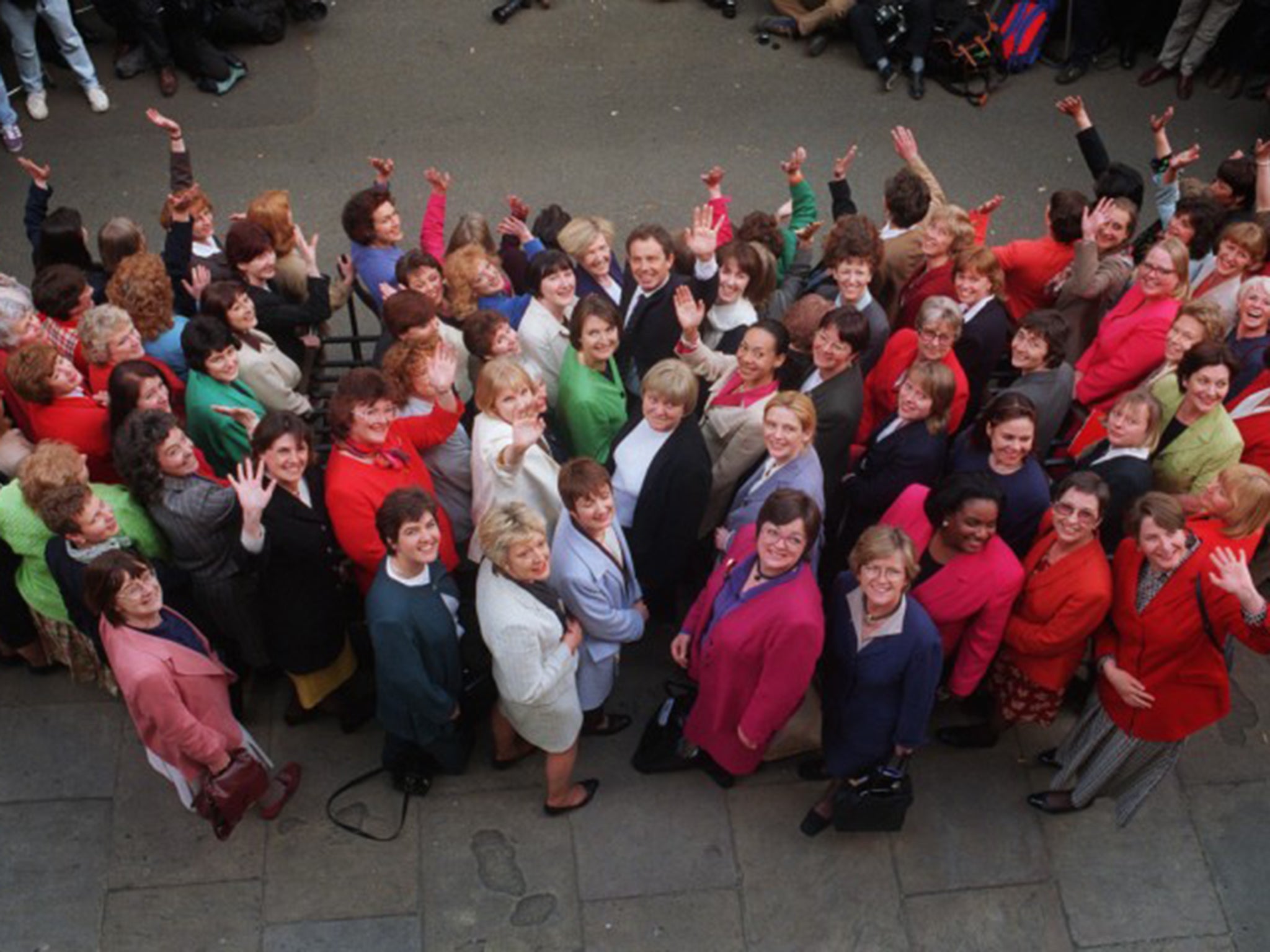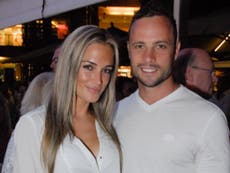Feminism shines a light on a world darkened by sexual slavery, mass rape and misogyny
Who would have predicted, when this column began, that a whole series of terrorist organisations was about to emerge, incubating a pathological loathing of women?

In 1997, when I began writing a weekly column for The Independent on Sunday, Labour had just won a landslide election victory. I wasn’t a fan of Tony Blair, an antipathy that appeared to be reciprocated when I turned up at a party at No 10 a few years later, but Labour’s success changed the appearance of the House of Commons out of all recognition. There were suddenly 120 female MPs in the lower chamber and the vast majority (101, to be exact) belonged to the Labour Party.
That was still less than a fifth of the House, but back in 1979, when Margaret Thatcher became the country’s first female prime minister, the figure was only 3 per cent. Labour’s 1997 intake was patronised as “Blair’s Babes” but it began to feel normal to see MPs who weren’t men in suits speaking about matters which affected half the population. If progress since then sometimes seems painfully slow, last year’s general election lifted the proportion of women MPs to a record 29 per cent, thanks in part to the success of the SNP.
It’s essential to record these milestones because the world in 2016 sometimes appears to be a very dark place, and especially so for women. The late 1990s, when Sex and the City sparked conversations about everything from the pleasure of sex to coping with sexually transmitted diseases, now feels like a lost moment of innocence. Who would have predicted, watching Carrie Bradshaw and her friends roam New York in four-inch heels, that a whole series of terrorist organisations was about to emerge, incubating a pathological loathing of women?
I knew that Japanese soldiers had forced thousands of foreign women to work in military brothels during the Second World War, but I didn’t expect to see sexual slavery being practised in my lifetime. It is impossible to feel anything but horror as Yazidi women who have escaped the clutches of Islamic State (Isis) talk about mass rapes and being sold as sex slaves. Something similar has happened, I assume, to the schoolgirls kidnapped from a school in northern Nigeria by fighters from another Islamist organisation, Boko Haram. With the second anniversary of the mass abduction approaching next month, more than 200 girls are still missing and their desperate families can only guess at what might have happened to them.
The deliberate targeting of women and girls by terrorist organisations isn’t just a resurgence of barbarism. It flies in the face of a belated recognition by the international community that sexual violence, far from being an accidental by-product of war, is a deliberate and unacceptable feature of conflict. In 2001, a war crimes tribunal sitting in The Hague ruled that the mass rape and enslavement of women are crimes against humanity, a charge second in gravity only to genocide; in a landmark judgment, three Bosnian Serbs who had been convicted of the rape, torture and enslavement of Muslim women in the Bosnian town of Foca were sentenced to a combined total of 60 years in prison. I can only hope that the Isis leader Abu Bakr al-Baghdadi, who is said to have repeatedly raped Yazidi captives and the American aid worker Kayla Mueller, one day meets a similar fate.
Two decades ago, no one talked much about female genital mutilation (FGM), even though it has been illegal in this country since 1985. Now, thanks to campaigning by young women such as Nimco Ali, founder of the anti-FGM organisation Daughters of Eve, it has moved close to the top of the political agenda. While there has yet to be a successful prosecution in this country, police in Bristol last month used new powers to prevent three girls who were considered at risk of mutilation from being taken abroad. FGM protection orders were introduced last year as part of a raft of measures to stop the practice, which is now widely recognised as a form of child abuse. Last week an Australian judge sentenced three people – a retired nurse, a mother of two girls and a community leader – to 15 months in prison at the end of the country’s first FGM prosecution. The victims were just seven years old when they were cut.
None of this would have happened without feminism. A generation of women and men whose mothers were feminists, including the Canadian Prime Minister, Justin Trudeau, are relaxed about applying the word to themselves and calling publicly for greater gender equality. That’s why I think feminism is robust enough to weather attacks from some trans activists, who seem unable to disagree with distinguished figures in the women’s movement without trying to turn them into hate figures. I disagree with Germaine Greer on various issues, including prostitution, but her 1970 bestseller The Female Eunuch remains an intellectual challenge and an inspiration. Personal attacks and calls for “no-platforming” have no place in one of the world’s great human rights movements.
The world we live in today is far more polarised than I could ever have imagined in 1997. A couple of weeks ago, on a trip to Paris, I saw soldiers on the streets and was reminded that the city has suffered two devastating terrorist attacks – one of them against journalists – in less than 12 months. Writers, liberals and women are targets of choice for people inspired by reactionary ideas, which often turn out to have misogyny at their heart.
I have tried to challenge those ideas in my columns for The IoS, and I want to thank the paper’s readers for staying with me for almost two decades. Not goodbye, I hope, but au revoir.



Join our commenting forum
Join thought-provoking conversations, follow other Independent readers and see their replies